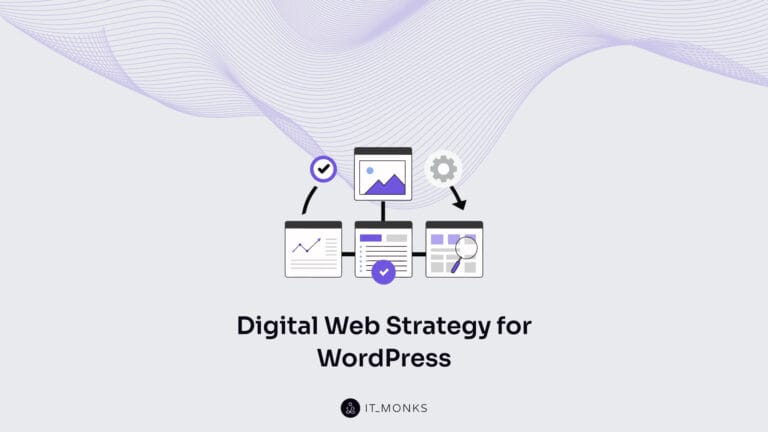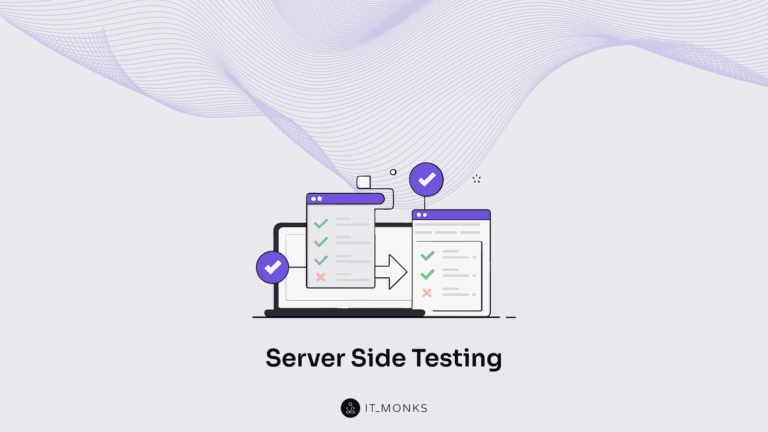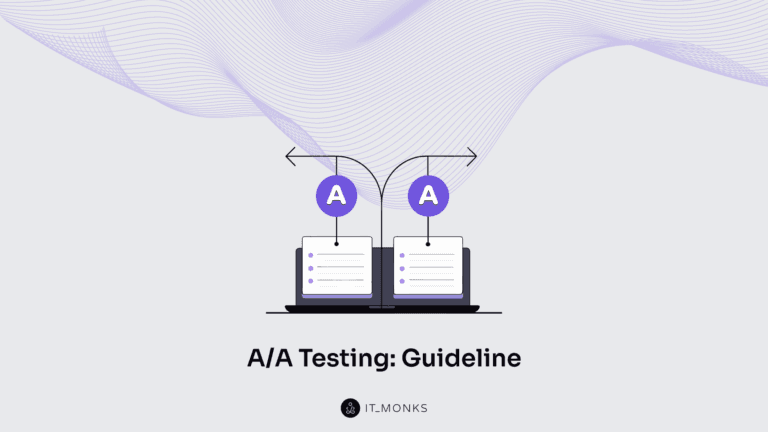The Most Common WordPress Security Vulnerabilities Explained
Table of Contents
When you consider using WordPress as the CMS for your website, among many other factors that you keep in mind, you should be concerned about potential WordPress security vulnerabilities that you might face when your site launches. This post will discuss the most common security issues that you may face while using WordPress and the steps you can take to protect your web resource from attacks.
After a series of WordPress hack attacks, many started to wonder if the CMS is secure enough to trust it online presence of millions of businesses worldwide. A quick answer is yes; WordPress is safe enough. The most common reasons for hack incidents are typically the aftereffect of human errors. It can be everything starting from the configuration error and a failure to update WordPress plugins or install insecure extensions.
Is WordPress Secure Enough?
According to the stats shared by W3Techs, more than 34% of websites worldwide are powered by WordPress. This is a tremendous number, which equals millions of web resources all over the globe. So, it’s logical to assume that WordPress security vulnerabilities are inevitable. Not all users are careful enough about using their websites. Whenever a hacker finds a website with weak security patterns, he will hardly miss the chance to hack it straight away.
WordPress is an open-source CMS. A research team is specifically dedicated to finding out new WordPress security vulnerabilities and fixing them right away. New fixes are released in new updates. That’s why it’s essential to keep your WordPress website always up-to-date. If you decide to build a website with a WordPress theme, make sure that regular updates are included.
Apart from WordPress core, it’s essential to mind security issues that you can face after installing WordPress plugins and themes. According to the stats shared by wpvulndb, there are 4162 unique WordPress security vulnerabilities. It includes:
- 14% of security issues caused by WP core;
- 75% are from WP plugins;
- 11% are caused by WP themes.
The Most Common WordPress Vulnerability Types
WordPress security issues occur before or after your website are compromised. Hackers aim to gain unauthorized access to your web project’s admin area, either from the front end or on the server site, with the primary intention to insert malicious data or steal valuable files. To prevent this from happening, you should be aware of the least protected areas of your website.
Malicious Software
Malware refers to the code that hackers use to gain unauthorized access to your site’s sensitive data. If a website is hacked, it’s most likely that malware has been injected into your website’s files. If you notice that something has changed on your website, you should check the changes applied to the recently updated files.
The most common WordPress malware infections include:
- Malicious redirects;
- Backdoors;
- Drive-by downloads, etc.
As a website administrator, you can identify and clean up malware by removing malicious files manually, installing a new WordPress version, or getting back to the non-infected backup.
Brute Force Attack
It deals with a hacker’s multiple attempts to choose the right combination of login and password details to enter your website’s administration area. Your login page is the easiest way to access the vulnerable data of your site.
WordPress doesn’t limit the number of login attempts. It means that bots can continue choosing the right combination until they end up with success. Even though bots may fail to hack your WordPress project, such an uncommon behavior on your web page can affect your website’s performance. For example, if you use a shared hosting plan, your hosting services provider may suspend your account as they notice your site being under brute force attacks.
SQL Injections
MySQL database is used to let your website operate just the way it’s required. SQL Injections occur when hackers gain access to your website’s database and your site’s data. As a result, a hacker can take full control over your web project. He can create a new admin-level user account to get full access to your WordPress site’s data and settings. He can also use SQL injection to add malware links and spam your website, which can significantly affect its performance.
XSS
XSS, or cross-site scripting, attacks make up 84% of the total number of vulnerability issues that take place on your website. This is the most common type of issues found in plugins and extensions for WordPress. XSS works this way – an attacker finds a way for a victim to load your website’s pages with insecure javascript scripts. When a person accesses your website, they steal data from the browser without him even knowing about this. One of the most common cased of cross-site scripting is a hijacked form that resides on your web page. A hacker steals the user’s data when a person enters his details into that form.
File Inclusion Exploits
Next to the brute force attacks, vulnerabilities in your website’s PHP code are the next issue that appeals to hackers. File inclusion exploits are among the most common ways to let attackers reach your website’s config.php file. The issue happens when vulnerable code is used to load remote files, allowing hackers to access your site easily.
Major Reasons for WordPress Vulnerability Issues
Passwords Aren’t Strong Enough
One of the easiest ways to improve your website’s security is by choosing a strong password to access your site’s admin area. A weak password is one of the most common reasons for WordPress security breaches. A strong password should include different types of characters, symbols and numbers. The combination of characters and symbols that you choose for your WordPress password shouldn’t be used anywhere else.
To rest assured that you use a strong password, you can check if it has been compromised using the iThemes Security plugin. It checks if your password has ever appeared in a data breach or exposed for public access.
Downloading Plugins and Themes from Unreliable Sources
WordPress plugins and themes are among the major security vulnerabilities. That’s why you should always check if the resource where you download the respective items is reliable and reputable enough. Getting themes and plugins with poorly-written code is the most common way for an attacker to exploit your web project and get full access to sensitive data.
To prevent this from happening, download plugins and themes from the official wordpress.org repository or premium web developers that have been in the market for a while. Avoid using freebies even though their free access attracts you. Installing bootleg free versions of premium plugins on your website can result in more expensive website security outcomes. So, think twice before you download and add anything to your site.
Using Outdated WordPress, Plugins and Themes
In addition to downloading plugins and themes from trusted sources, you should keep a close eye on keeping then up-to-date. An outdated version of WordPress plugins and themes doesn’t provide you and your website with the expected protection from security breaches. As we’ve already mentioned above, updates include patches for security vulnerability issues in the code. There is a growing number of malware and scam on the web. Using the latest version of WordPress, your web resource will be more protected from security breaches.
It’s easy to check if there are any updates available for your website. Navigate to your WordPress dashboard. They will appear in the dashboard as soon as they are available.
Anyway, it’s a good practice to check for updates once in a while and run regular backups of your site.
Unreliable Hosting
We’ve already spoken about the importance of choosing a reliable hosting provider here on the blog. The server where your website resides is one of the primary targets for attackers. An insecure and poor-quality WordPress hosting makes your WordPress website more vulnerable to being compromised. Security should be one of your major considerations while choosing a WordPress host. While many of them pay attention to secure their servers, not so many manage to implement the latest security measures.
Opting for shared hosting is not a good idea if we are talking about WordPress security. Because there are many websites stored on the same server with you, attackers may gain access to your admin area as soon as they hack any other website on your host.
Tips on How to Protect Your WordPress Site
With that being said, let’s consider the steps that you need to take to keep your website safe.
- First, use a strong password containing at least 6 characters in both low and upper cases. Change the password right away if you use it for more than one login. You should also consider changing the password if you’ve been using it for more than 6 months. If it is too simple and contains words duplicating the account name, then it’s a clear signal that you should start taking quick actions.
- While enabling WordPress two-factor authentication, you take additional security measures that lessen the risk of attacks. In addition to using a strong password, you need to confirm the login attempt from another device, like a smartphone. This is one of the best ways to minimize the risk of WordPress security breaches completely.
- You can check what security plugins are available for download at wordpres.org. Before deciding on what plugin to choose, check how often it’s updating. The rating and number of active installs should also give you a hint on whether the chosen plugin is worthy of your attention.
- Keep a close eye on updates. If you find notifications about updates in your WordPress dashboard, do not ignore them. If you use a premium license of WordPress plugins and themes, make sure you are getting all the required updates from the software provider.
- Choose a reliable WordPress backup plan. It’s an essential component that can help you prevent WordPress security issues. Whenever you notice that something went wrong on your site, you can get back to your website’s earlier versions when everything worked as it was intended. Opt for WordPress backup services that offer a restore component for those cases when you need to restore your WordPress website from a clean backup.
- Last but not least essential point is to protect you from WordPress brute force attacks. Opt for services that provide brute force protection to ban those users who tried to break into other sites and prevent them from hacking your web resource.
Bottom Line
When done right, your WordPress website can be the safest and the most secure place you’ve ever seen. Consider using the tips that we explained above and implement them on your platform. Protecting websites from WordPress security vulnerabilities can be as simple as keeping it always updated and choosing a reliable WordPress hosting service from the start. A strong password and two-factor authentication can do wonders for your site’s security.
Contact
Don't like forms?
Shoot us an email at [email protected]



